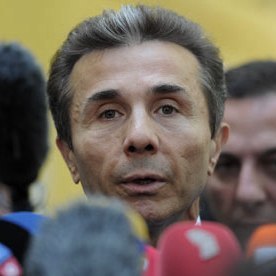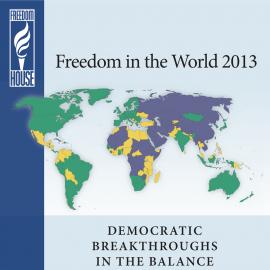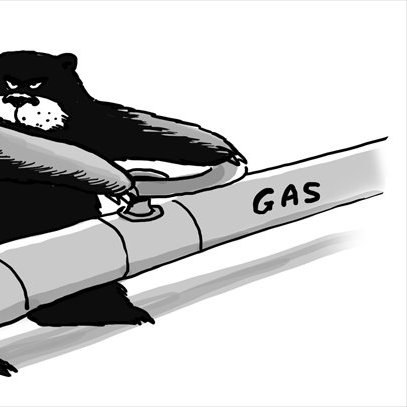(CACI Analyst) Georgian politics have entered a turbulent period after the October parliamentary elections. The situation is exacerbated by a difficult cohabitation process between the newly elected government of Bidzina Ivanishvili and the outgoing President Mikheil Saakashvili. While both sides are reluctant to engage in cooperation and the prospects for a stabilization of Georgia’s political life are limited, the election also marks an important crossroads in the country’s emerging foreign and security policy. While many uncertainties remain regarding Georgia’s new foreign policy, it has opened an opportunity to repair Georgia’s relations with Russia. While such prospects could help alleviating Georgia’s security predicament, they also contain risks to the country’s long term strategic interests.
BACKGROUND: From the beginning of Ivanishvili’s ascent to power, he indicated that “normalizing” the relationship with Moscow had to be his first foreign policy priority. Unlike Saakashvili, Ivanishvili and his team believe that foreign policy should be determined by, and subservient to, domestic policy. Therefore it is not possible to remain in perpetual confrontation with Russia. Bilateral relations have deteriorated to a dangerous state over the last decades, and the new government considers the adoption of a more pragmatic, less ideologically driven and balanced line with Moscow as key to improving Georgia’s economic and cultural ties with its northern neighbor. The assumption is that if Tbilisi downplays the heated rhetoric of the previous government, Moscow would reciprocate. So far this assumption has turned out to be wrong. Moscow continues to take a hard-nosed bargaining approach with Tbilisi and seeks outcomes that will be very difficult for Ivanishvili to accept. In order to normalize relations, the Kremlin wants Tbilisi to accept what it terms the “new geopolitical realities” on the ground, which is a nonstarter for any Georgian government.
Ivanishvili’s team asserts that improving relations with Russia is supported by a majority of the Georgian population as well as the country’s Western friends who have repeatedly called on Georgia to engage in dialogue with Russia. However, Ivanishvili has also repeatedly claimed before and after the elections that he will keep Georgia on the course towards NATO membership and integration with the EU while also continuing efforts to reintegrate Georgia’s occupied regions of South Ossetia and Abkhazia. While Ivanishvili’s team does not accept that positive relations with West and Russia are mutually exclusive, critics claim that unless checked, Tbilisi’s rapprochement policy with Moscow could end up in a Ukraine-like backslide into the Russian orbit. Pessimists assert that there is little reason for Moscow to adopt a softer approach, particularly at a time when Moscow feels that it can capitalize on Georgia’s troubled relations with the West in general.
A recent meeting of Russian and Georgian envoys in Geneva, which was the first bilateral contact between official representatives of the two countries since the 2008 war, indicated that unlike Saakashvili, Ivanishvili’s government is an acceptable interlocutor for the Kremlin. However, there are also some signs that Moscow has initiated political bargaining with Georgia in exchange for normalized relations, and has made it clear that it is expecting specific steps from Tbilisi. One related risk is that Russia may attach its embrace of the new Georgian government to demands that Georgia takes steps to integrate with the Russia-dominated Eurasian Union in exchange for other concessions.
Understanding this, the new government has so far sought to avoid direct official contacts with Moscow, knowing that anti-Kremlin sentiments still remain strong in Georgia’s polarized politics. At the same time, despite attempts to portray Ivanishvili and his government as a “Russian Trojan horse,” the new government so far displays no subservience to Russian influence and repeatedly emphasizes the need for continued Euro-Atlantic integration. Moreover, given the importance of the issue to Georgia’s national security, the new government also has been at pains to emphasize that Georgia’s sovereignty, territorial integrity and free choice in international affairs will not and cannot be a subject of discussion.
IMPLICATIONS: While the new Georgian government intends to engage in constructive talks with Moscow and seeks to find solutions to existing problems, it seems that Moscow views Tbilisi’s good will as a weakness and has decided to drag its feet on politically less sensitive issues such as allowing a return of Georgian products to the Russian market, despite the fact that Russia is obliged as a WTO member to do so. Moreover, there are some indirect signs that Moscow, emboldened by the regime change in Tbilisi, is seeking to lure Georgia’s new leadership and bring it closer to the Russian political and security realm.
A statement of Belarusian President Lukashenko that “Russia would be happy if Georgia rejoined the CIS” and that “he is ready to beg on his knees for the Georgia’s return to the Commonwealth of Independent States (CIS)” is a case in point. Moreover, there are indications that Moscow wants to change the Geneva format and replace it with bilateral negotiations involving tactics of secret diplomacy. Moscow also wants to display to the international community that it can settle relations with Tbilisi without any western engagement. As Georgia would find it easier to influence Russia by means of international levers under the Geneva format, from the Kremlin’s point of view any external involvement (specifically by EU member states and the U.S.) in Russia’s sphere of influence are not welcome and may hamper bilateral relations between Russia and Georgia.
Whatever Moscow’s desire, a recent survey by the U.S. based National Democratic Institute (NDI) suggests that while 79 percent of Georgia’s population support improved relations with Russia; they are not willing to accept compromises on issues like Georgia’s territorial integrity or its foreign policy orientation. In fact, the same survey suggests that the Georgian population’s support for NATO and EU integration has become even stronger, increasing to 71 percent and 77 percent respectively in November 2012.
The Georgian public remains divided over the future negotiation formats with Moscow but these results indicate that Georgians are unlikely to accept trading a future NATO membership for improved relations with Russia. While a new negotiation format may decrease the risk of direct Russian aggression towards Georgia, some Georgians fear that re-opening direct talks with a country that waged a war against their homeland would create additional problems. Others believe that any issue in relation to Moscow should be solved within a comprehensive framework aimed at de-occupation of the two Georgian regions and the restoration of Georgia’s full sovereignty.
As Georgia’s NATO ambitions remain the main irritant in the Kremlin’s view, it is up to the Georgian government to find an appropriate language of communication with Russia, while avoiding to cross any red lines that may hamper Georgia’s further integration with Western political structures. However, the irony of the story is that as Tbilisi pushes toward more engagement with Moscow, it inadvertently invites the Kremlin and potentially gives it a chance to regain the leverage on Georgian domestic affairs that it effectively lost after the war.
Another danger for Georgian diplomacy stems from President Putin’s integrationist Eurasian Union project, which by Moscow’s design allows the leaders of CIS countries to slightly improve their citizens’ standard of living through Russian-subsidized deliveries of cheap natural gas, a wider common labor market and other social benefits that Russia’s neighboring economies, including Georgia’s, are unable to provide for their domestic constituencies alone. Georgia’s new government, which promised Georgian voters a drastic improvement of social and economic conditions, could prove a good target for Russia’s geopolitical pressure in this respect.
CONCLUSIONS: So far, the Georgian withdrawal from its western ambitions and its gradual move into Russia’s sphere of influence that some observers anticipated after the election is largely exaggerated. Nonetheless, in exchange for mending ties with Moscow it may be tempted to return to the policy of balancing with Russia pursued by former Georgian President Edward Shevardnadze. In such case, there is certain risk that Georgia may take a pause on its path towards Euro-Atlantic integration, which could in turn slow institutional reform aimed at bringing Georgia closer to EU standards. Similarly, it would be a mission impossible for Georgian diplomacy to achieve all of Tbilisi’s newly proclaimed goals, most notably convincing Moscow to accept a Georgian NATO membership. Although it remains to be seen whether Georgia will be able to bargain the best deal for itself in this delicate situation, one thing is certain – Georgia’s place in the region, and its relations with both Russia and the West, are entering a crucial new phase.
See the article | © CACI Analyst ()











